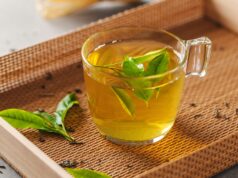BY PAGE LOVE, MS, RDN, CSSD, LD
Fall and winter offer wonderful produce options to get an antioxidant punch for your performance routine. Check out these key fruits and vegetables and how you can use them for pre- or post-tennis play to enhance your performance and your health.
Pumpkin
Pumpkins are extremely beneficial to athletic performance and recovery. They are rich in potassium, fiber, antioxidants and vitamin A, which are excellent for our eyesight and skin. The potassium in pumpkins is essential for heart health, skeletal systems, muscular systems, blood pressure and electrolyte balance. When we exercise vigorously, we lose vital electrolytes (such as magnesium, calcium and potassium) through our sweat. Decreased levels of potassium can lead to fatigue and muscle cramping.
Pre-tennis:
Add ½ cup of pumpkin puree to your morning oatmeal.
Post-tennis:
Mix ½ cup of pumpkin puree into a protein shake.
Beets
Beets are packed with a variety of nutrients, in addition to a high level of nitrates. Nitrates are converted to nitrite once ingested, increasing nitric oxide. Nitric oxide leads to increased vasodilation, with anti-inflammatory characteristics, as well as antiplatelet aggregation properties. Research suggests that nitrates in beets can improve performance, endurance and heart proficiency in athletes.
Pre- or post-tennis:
Make a beet and berry smoothie with 1 cup frozen berries (such as blueberries), ½ cup raw beets, banana, hemp/chia/flax seeds, spinach/kale, ½ cup unsweetened almond milk and/or Greek yogurt.
Sweet Potato
Sweet potatoes are high in fiber, vitamin A, vitamin C, manganese and several other vitamins and minerals, including riboflavin, phosphorus, vitamin E, vitamin K, calcium and iron. The potassium and magnesium can help prevent muscle spasms during your athletic endeavors. Some other added benefits of sweet potatoes include the stabilization of blood sugar, high antioxidant capacity, improved brain function, enhanced immunity, as well as enhanced vision – all important for athletic performance.
Pre- or post-tennis:
Sweet potato rounds are a great way to incorporate this nutrient-dense fall vegetable into your diet. Slice potatoes into ½-inch rounds. Toss in olive oil and seasoning. Bake until golden brown.
Okra
Okra is high in vitamins K and C and is a good source of fiber and folate. Okra is high in soluble and insoluble fiber as well. The fiber in okra has been associated with cardio-protective properties, optimal digestive function, reduced cholesterol levels and weight management. Okra contains polysaccharides, long-chain carbohydrates that increase the amount of stored glycogen, aid in energy storage and fuel athletic performance.
Pre- or post-tennis:
Make skillet-roasted okra (vs. Southern fried) to lower fat and preserve more of its power-packed nutrients.
Spaghetti Squash
Spaghetti squash contains a powerhouse of nutrients, not to mention the carbohydrates essential for endurance and strength. These nutrients are beneficial to fuel tough workouts, practices, games and matches. The dominant mineral in spaghetti squash is manganese, which aids bone health and tissues. The fiber in the squash helps with satiety, blood sugar stabilization and lowering cholesterol. Spaghetti squash also is a great source of beta-carotene, an antioxidant that can be converted into vitamin A. Vitamin A is crucial for our epithelium, immune function, eye health and vision. Research suggests beta-carotene also can reduce oxidative stress, which ultimately causes muscle wasting and fatigue. Vitamin C aids in wound healing, repairs tissues, supports immune health and may reduce the adverse effects of exercise-induced reactive oxygen species, including muscle damage, immune dysfunction and fatigue. The vitamin B6 provided in spaghetti squash is involved in 100-plus enzyme reactions in our body, including energy metabolism.
Pre-tennis:
Spaghetti squash bites are a great way to add this nutritious vegetable to your diet. Halve a spaghetti squash and bake for 1 hour. Sauté onions with garlic and set aside. Scoop out innards of squash and combine with 2 eggs, onion and garlic. Place equal amounts in the bottom of muffin tin. Bake for 30 minutes or until golden brown.
Kale
Kale is a nutrient powerhouse, containing high levels of vitamins, minerals and brain-boosting phytonutrients. It’s packed with lots of vitamin C, calcium and vitamin K, all of which are essential for recovery. Kale is a remarkable anti-inflammatory, with cholesterol-lowering effects and anti-carcinogenic properties. Further, kale has been shown to decrease the risk of cardiovascular disease.
Pre-tennis:
Add some kale to your normal smoothie.
Post-tennis:
Use kale as the salad green option to be the base for your bowl meal (bowl also should contain a lean protein with a starchy vegetable mentioned above).
Pears
Pears are rich in antioxidants, flavonoids and dietary fiber. The fiber content, in conjunction with the antioxidant phytochemicals, make the fruit a great preventative against developing cancer, hypertension, diabetes and heart disease. Pears provide beneficial nutrients to reduce inflammation and improve recovery time from intense exercise. Pears also provide quick energy for an effective workout.
Pre-tennis:
Try a pear salad with gorgonzola or goat cheese as a side with your sandwich.
Post-tennis:
Blend 1 cup of pears with protein-fortified almond, soy or low-fat milk and ice.
Cranberries
Cranberries often are referred to as a “super fruit.” The nutrients in cranberries have been linked to a lower risk of urinary tract infections, prevention of certain types of cancer, improved immune function and decreased blood pressure. The polyphenols in cranberries also help to improve vascular function, which has a powerful effect on an athlete’s cardiovascular health.
Pre-tennis:
Make your own trail mix snack packs with equal portions of cranberries, granola and nuts.




